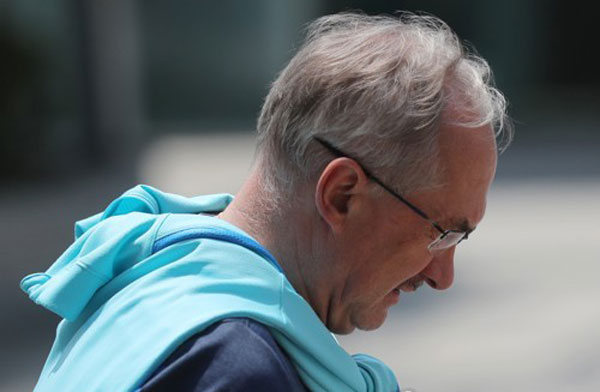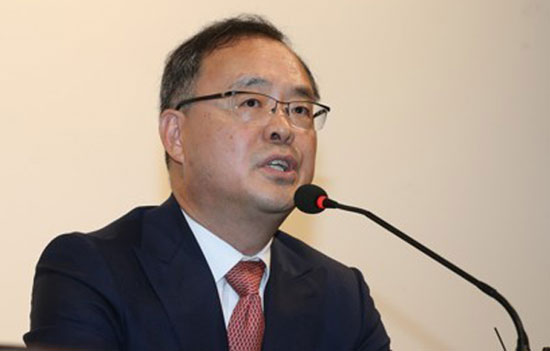South Korea sacked Uli Stielike as their men's football head coach Thursday in the wake of their World Cup qualifying loss to Qatar.
The Korea Football Association (KFA) said it decided to part ways with Stielike following a technical committee meeting at the National Football Center in Paju, north of Seoul. The announcement was made just a day after Stielike and the South Korean squad returned home from Doha, where they fell to Qatar 3-2 in the final Asian qualifying round for the 2018 FIFA World Cup.

Lee Yong-soo, the KFA technical committee chief, said the KFA decided to terminate Stielike's contract on mutual consent.
"Since Stielike became the head coach in 2014, he worked hard to develop South Korea's football environment, educate football instructors, while posting a good result at the Asian Cup (in 2015)," Lee said at a press conference at the NFC. "But we thought he failed to deliver the results that we wanted in the final qualifying stage."
In the final round, the Taeguk Warriors remain in second place in Group A with 13 points from four wins, a draw and three losses. Stielike's side, however, are just one point above No. 3 Uzbekistan with two matches remaining. They have yet to collect a win away from home and all of their victories were decided by just one goal.
In Asian qualifying, the top two from each of the two groups will advance directly to the 2018 World Cup in Russia. Two third-place teams must go through playoffs for their final chance.
Stielike, who took over the team in September 2014, was the longest-tenured head coach in the men's national team history. He was contracted through the 2018 World Cup, should South Korea qualify for the tournament. The 62-year-old will leave the helm with a record of 27 wins, five draws and seven losses.
When asked about pay-off clause in Stielike's contract, Lee said he doesn't know whether the German will receive compensation.
"I don't know details of the contract between the KFA and Stielike," he said. "Everything will be processed according to what's written on his contract."

Lee also tendered his resignation to take the responsibility for the situation. It was Lee who hired Stielike after the 2014 FIFA World Cup.
"The national team head coach should be responsible for the match results, and the technical committee should be responsible in a big plan," he said. "I'm also in the position to bring results, but couldn't produce what we wanted. I'm also stepping down from my position."
Lee said the KFA and the national team will overcome the current crisis and they need to move on to prepare for the remaining two qualifiers. South Korea, chasing their ninth consecutive World Cup appearance, will host already-qualified Iran on Aug. 31 and face Uzbekistan in Tashkent on Sept. 5 to close out the qualifying stage.
He claimed that next national team boss should be a local, adding that the new coach will not be a caretaker for the remaining two matches, but will be guaranteed to lead South Korea through the 2018 World Cup should they qualify.
"I believe we can produce better results with new people," he said. "For now, I think we have a small pool of candidates to choose from. In my opinion, this is the situation where South Korean coach should take over."
South Korean media have already rolled out possible names for the next head coach, such as Huh Jung-moo, who previously led South Korea to the round of 16 at the 2010 FIFA World Cup, and Shin Tae-yong, who recently managed South Korea at the U-20 World Cup at home.
"I think every national football team head coach is an expert, and one year would be enough to build the team for the 2018 World Cup," he said.
Lee said the next leader should possess two ingredients: risk management skills and the ability to communicate closely with the players to make the team atmosphere great. He claimed that a foreign coach at this point is not an ideal choice because he'll first need lots of time to learn about the players. (Yonhap)

